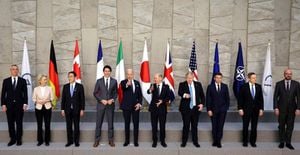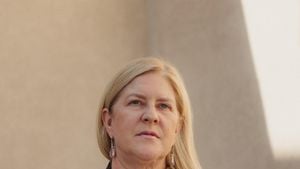Punjabi singer Diljit Dosanjh has found himself at the center of controversy following recent notices from the Telangana government concerning his performances. Prior to his much-anticipated concert on November 15 for the "Dil-Luminati" tour, authorities instructed him to avoid singing songs promoting alcohol, drugs, or violence. This directive was issued in response to complaints alleging the influence of his performances on substance abuse and violence among youth.
During the concert, attended by thousands, Dosanjh complied with the regulations by modifying the lyrics of popular songs such as "Lemonade" and "5 Taara" to eliminate references to alcohol. Nonetheless, he expressed his frustration over the treatment, pointing out the perceived double standards faced by local artists compared to their foreign counterparts. While local entertainers are subjected to strict regulations, international artists often perform unrestricted. "It’s unfair. I quietly do my program and leave, yet I’m the one facing all this scrutiny,” Dosanjh remarked to the audience.
Two days later, during his concert in Ahmedabad, he took direct aim at the Telangana government's position, challenging the authorities to enforce stricter liquor laws throughout India. "If every state declares itself dry, then I’ll stop singing about alcohol. Until then, why the fuss?" He reasoned, highlighting the numerous Bollywood songs celebrating alcohol consumption compared to the few he has sung. He emphasized, "I do not consume alcohol myself, nor do I promote it. If there are concerns about alcohol consumption, let’s tackle it head-on by banning it altogether. Let’s start with my hometown, Amritsar, and declare it a dry city. If no liquor shops exist, then I will gladly refrain from singing any alcohol-related songs. Stop the liquor contracts, and I will stop supporting songs about drinking.”
This declaration, made amid laughter and applause from concertgoers, tapped deeply onto public sentiment surrounding alcohol regulations, especially as several Indian states have varying degrees of prohibition.
The notices to Diljit came following complaints from professional circles, particularly from Chandigarh-based academic Panditrao Dharenavar, who claimed his concerts glorified substance use and violence. Video evidence was presented to back this assertion, prompting the Telangana District Welfare Officer to act.
Despite adhering to the stipulated guidelines at his concerts, Dosanjh’s comments sparked widespread dialogue online, amplifying discussions on the balance between artistic expression and public interest. Critics argue for the need to maintain artistic freedom, especially when considering the heavy regulations affecting local artists compared to their global peers who seem immune to such scrutiny.
Dosanjh’s latest heats up the already simmering debates around substance use, youth culture, and the incursion of politics within the entertainment sector. Many hope his challenge to state governments could encourage more significant reforms concerning liquor regulations, especially amid calls from various societal groups advocating for stringent alcohol laws.
Underscoring the complexity of the current issue, Dosanjh’s case serves not merely as another chapter of celebrity controversy but rather as the voice of local artists grappling with broader societal challenges. His remarks resonate particularly because of the shared frustration felt by many within the entertainment industry who perceive their roles not just as entertainers but also as influencers capable of shaping public behavior.
The singer has stressed the importance of engaging the youth on this issue rather than simply dismissing it with regulatory controls. "We need to inspire them to think critically about their choices rather than impose restrictions. Education and awareness will last longer than directives anyone can impose," he said.
Overall, the incident highlights the delicate interplay between art, culture, and politics within India, leaving many waiting to see what consequences this decision will have, both for Dosanjh’s career and the broader conversation about alcohol regulation and public health.
The outcome of this dialogue reflects larger issues—how societies govern the arts, the role of artists as societal leaders, and how regulation can often reinforce barriers rather than break them down. It also raises questions about what responsibilities artists bear toward their audiences, particularly younger fans.
Until resolutions are reached, Dosanjh remains vocal about his stance. And as long as the music plays, so too will the debate about alcohol's place within it. With the public weighing these issues heavily, the conversation is bound to continue, pointing to how art can both reflect and challenge social norms.



